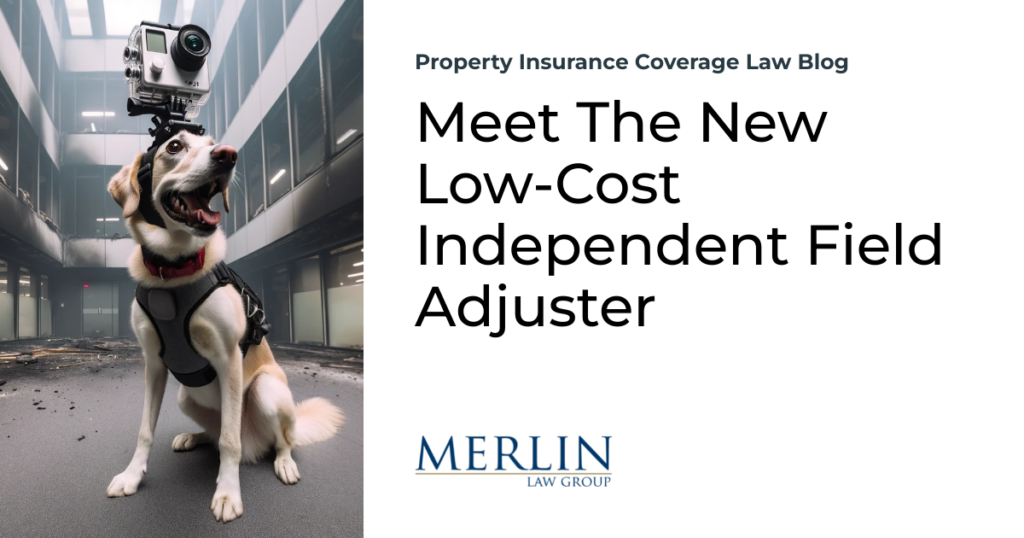Meet The New Low-Cost Independent Field Adjuster

Why is it increasingly rare to encounter seasoned property insurance field adjusters equipped with the full authority to settle claims? Reflecting on my 40-year journey in the insurance claims industry, I recall a time when businesses and individuals were served by adept and proficient adjusters. It begs the question: “Is the role of the experienced property insurance field adjuster diminishing?”
Last week, while attending a pre-speech dinner in New Orleans, I engaged in a thought-provoking discussion with three independent adjusters, a contractor, a public adjuster, and the esteemed sponsors of the PLAN Appraisal Conference, John and Cathy Robison. Our conversation gravitated toward the current trend in the industry: the increasing presence of non-licensed entities in roles traditionally reserved for licensed property insurance adjusters. One striking example highlighted was of companies such as Seek Now, which, while not traditional adjustment firms, effectively act as adjusters. They investigate coverage facts and evaluate damages, often solely through video documentation, without the depth of experience one might expect. Jerry Petracek, one of our dinner guests, humorously mused that to further cut costs, insurers might soon resort to strapping video cameras on dogs!
So, a question I’m frequently posed is: Why do so many insurance claims culminate in disputes, necessitating mediation, appraisal, arbitration, or litigation? A significant part of the answer lies in the evolving dynamics of the insurance industry. Cost-conscious managers and financial overseers have transformed numerous insurance companies into entities that prioritize marketing over the actual delivery of promises. The unfortunate result? A decline in the number of quality personnel dedicated to fulfilling the very promises these insurance companies market when losses require that claims be paid fully and promptly.
I noted Mathew Mulholland’s speech about wear and tear exclusions being overused in Mathew “One T” Mulholland Does a Great Job Educating Georgia Public Adjusters on Georgia’s Efficient Proximate Cause Doctrine and How It Applies to the Wear and Tear Exclusion. His speech showed examples of these non-adjuster consultants dovetailing policy language about causation as if they were trained to use “wear and tear” words of art to help the insurer give a plausible excuse to deny the claim. Most policyholders do not know that the insurance claims vendor industry has no ethics and that the people doing the work are doing it to help the insurance industry control the amount paid on claims. Most good people would never think that others would be outcome-oriented to keep business coming to them and that they are in competition with other unethical entities who will do and write even more to win business.
It’s puzzling that there hasn’t been a louder call from the insurance industry for stringent criminal and civil consequences against recurring insurance fraud by outcome-oriented vendors. While one might expect individuals like Barry Zalma, a staunch opponent of all forms of insurance fraud, to advocate for incarcerating such fraudulent actors, the industry remains surprisingly silent to fraud perpetuated by vendors who seek to gain favor by wrongfully lowering claims payments.
In contrast, there’s a sentiment within the insurance sector advocating for immunity from bad faith accountability and related civil penalties whenever consultants opine that losses are not to be paid or paid for much less. Their stance? They have a “right to be wrong.” Insurance company attorney Doug Houser notably championed this perspective in his influential law review, Good Faith as a Matter of Law: The Insurance Company’s Right to be Wrong,1 where he argued that policyholders are merely participating in a “litigation lottery.” Houser argued that insurers should be safeguarded from bad faith claims if they can present a debatable reason for claim denial or delay:
The courts are increasingly recognizing the dual obligations of insurance companies: to deny unsound claims and to honor valid ones. The notion of a ‘bad faith-punitive damages lottery’—where a few insureds garner enormous extra damages that are borne by the majority of premium-paying policyholders—is deemed untenable. With growing frequency, courts dismiss bad faith claims if the insurer’s denial has a plausible basis. The recent trend in several states requires a higher bar of evidence before awarding punitive damages, coupled with a broader acceptance of summary judgment motions. The emerging consensus is that insurers possess a good faith ‘right to be wrong’—a potent tool against baseless bad faith allegations.
This perspective, having gained traction among some judicial circles, essentially encourages insurers to find any debatable ground to minimize or refute claims. The burgeoning insurance consultant sector, which I previously discussed in Insurance Company Experts Are Often Biased And Outcome Oriented, is a manifestation of this trend.
So, what’s the proactive approach for genuine policyholders, contractors, and public adjusters? Support organizations like United Policyholders and the American Policyholders Association. I urge you to not only donate but actively participate. Mere commentary without actionable steps is ineffectual. In today’s digital age, such passive commentary might even be seen as mere attention-seeking. Real change is catalyzed by where one invests their time and resources. Let’s collectively champion the cause of policyholder rights and organizations genuinely striving for justice regarding claims handling.
On a related note, my wonderful partner, Donice Krueger, raised an eyebrow when she saw an image of a dog sporting a camera on its head. Upon understanding its relevance to my article, she humorously remarked, “Chip, you might want to equip that dog with a canine respirator and doggie booties. Otherwise, PETA and OSHA might come knocking, wondering about the dog’s employer!”
Thought For The Day
Recovery begins from the darkest moment.
—John Major
1 Douglas G. Houser, Good Faith as a Matter of Law: The Insurance Company’s Right to be Wrong, Tort & Insurance Law Journal Vol. 27, No. 3 (SPRING 1992), pp. 665-677.







